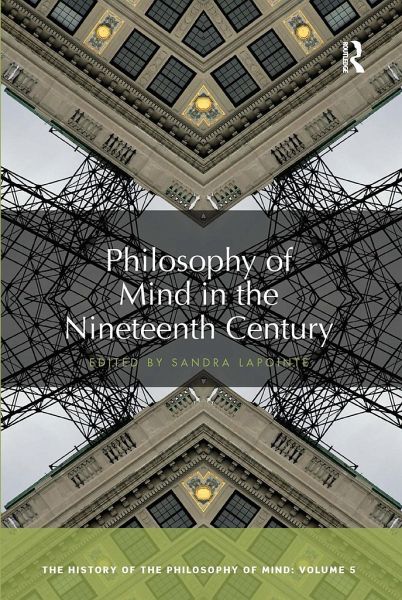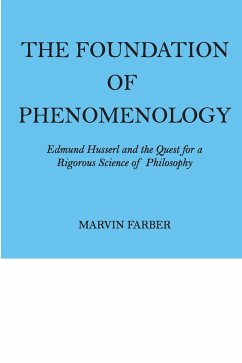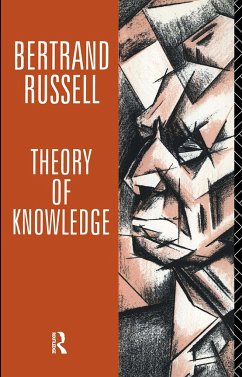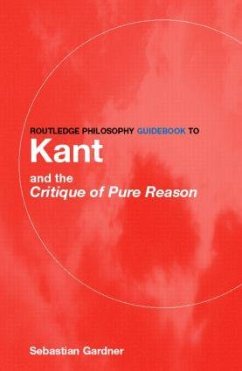
Philosophy of Mind in the Nineteenth Century
The History of the Philosophy of Mind, Volume 5
Herausgegeben: Lapointe, Sandra
Versandkostenfrei!
Versandfertig in 6-10 Tagen
33,99 €
inkl. MwSt.
Weitere Ausgaben:

PAYBACK Punkte
17 °P sammeln!
Between the publication of Kant's Critique of Pure Reason in 1781 and Husserl's Ideas in 1913, the nineteenth century was a pivotal period in the philosophy of mind, witnessing the emergence of the phenomenological and analytical traditions that continue to shape philosophical debate in fundamental ways. The nineteenth century also challenged many prevailing assumptions about the transparency of the mind, particularly in the ideas of Nietzsche and Freud, whilst at the same time witnessing the birth of modern psychology in the work of William James.Covering the main figures of German idealism t...
Between the publication of Kant's Critique of Pure Reason in 1781 and Husserl's Ideas in 1913, the nineteenth century was a pivotal period in the philosophy of mind, witnessing the emergence of the phenomenological and analytical traditions that continue to shape philosophical debate in fundamental ways. The nineteenth century also challenged many prevailing assumptions about the transparency of the mind, particularly in the ideas of Nietzsche and Freud, whilst at the same time witnessing the birth of modern psychology in the work of William James.
Covering the main figures of German idealism to the birth of the phenomenological movement under Brentano and Husserl, Philosophy of Mind in the Nineteenth Century provides an outstanding survey to these new directions in philosophy of mind.
Following an introduction by Sandra Lapointe, fourteen specially commissioned chapters by an international team of contributors discuss key topics, thinkers, and debates, including:
German idealism,
Bolzano,
Johann Friedrich Herbart,
Ernst Mach,
Helmholtz,
Nietzsche,
William James,
Sigmund Freud,
Brentano's early philosophy of mind,
Meinong,
Christian von Ehrenfels,
Husserl, and
Natorp.
Essential reading for students and researchers in philosophy of mind, continental philosophy, and the history of philosophy, Philosophy of Mind in the Nineteenth Century is also a valuable resource for those in related disciplines such as psychology, religion, and literature.
Covering the main figures of German idealism to the birth of the phenomenological movement under Brentano and Husserl, Philosophy of Mind in the Nineteenth Century provides an outstanding survey to these new directions in philosophy of mind.
Following an introduction by Sandra Lapointe, fourteen specially commissioned chapters by an international team of contributors discuss key topics, thinkers, and debates, including:
German idealism,
Bolzano,
Johann Friedrich Herbart,
Ernst Mach,
Helmholtz,
Nietzsche,
William James,
Sigmund Freud,
Brentano's early philosophy of mind,
Meinong,
Christian von Ehrenfels,
Husserl, and
Natorp.
Essential reading for students and researchers in philosophy of mind, continental philosophy, and the history of philosophy, Philosophy of Mind in the Nineteenth Century is also a valuable resource for those in related disciplines such as psychology, religion, and literature.














